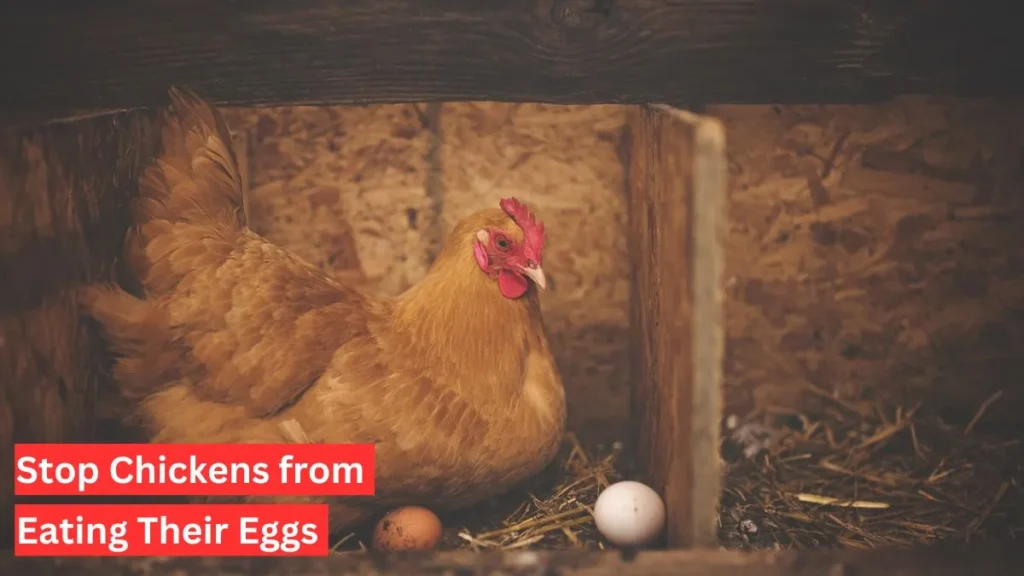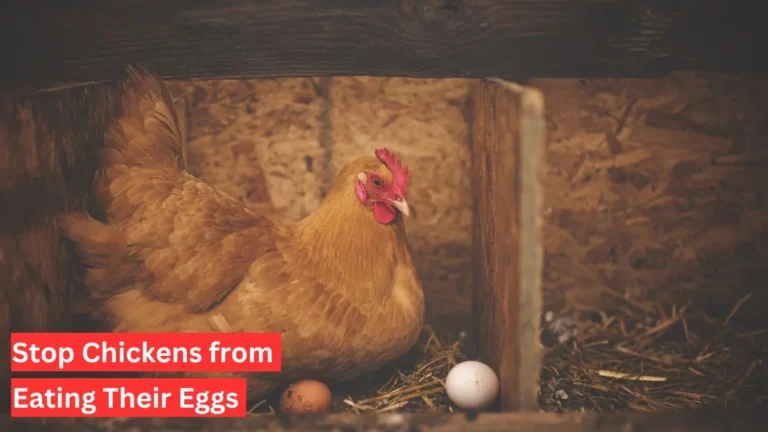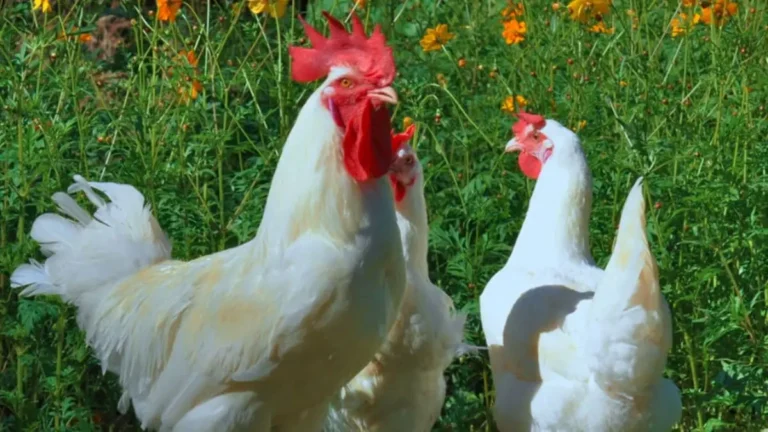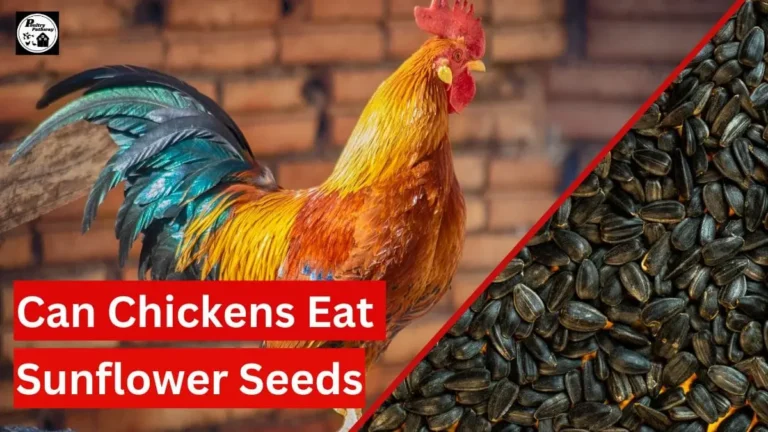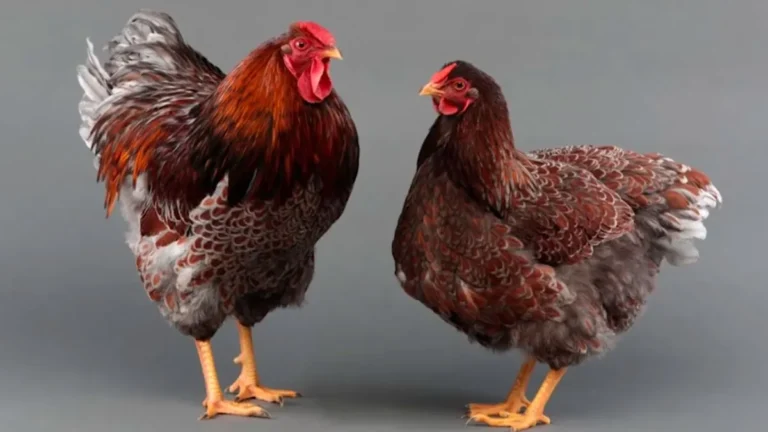Why Do Chickens Eat Their Eggs?
Chickens may start eating their eggs for several reasons, and what starts by accident can quickly become a bad habit. Understanding why this happens is important for stopping the behavior. Here are some common reasons:
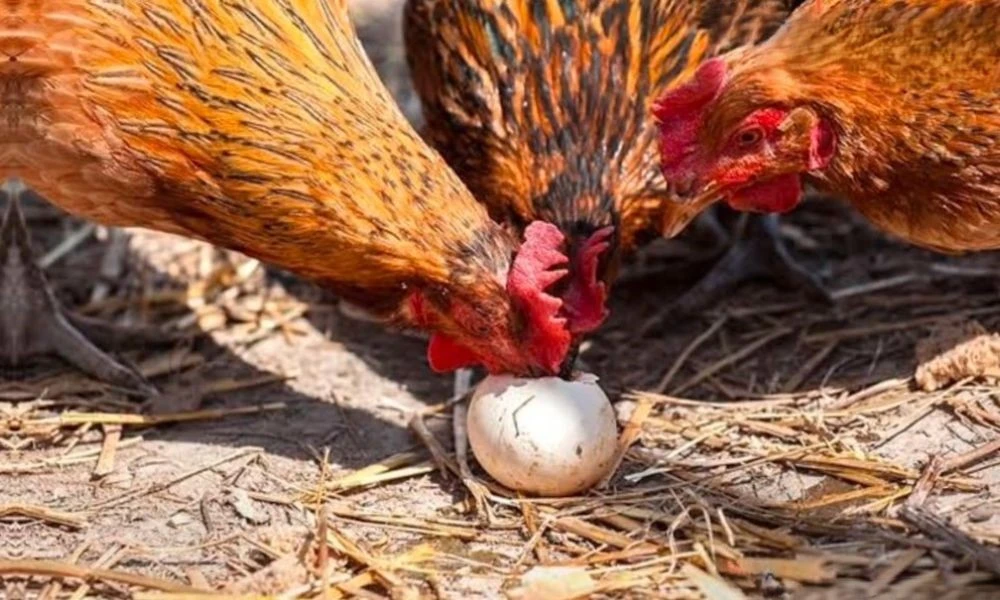
Lack of Proper Nutrition
One of the main reasons chickens eat their eggs is because their diet is missing key nutrients, like calcium or protein. Eggs are rich in these nutrients, so if a chicken isn’t getting enough through its feed, it might start eating eggs to get more. Calcium is especially important for strong eggshells, and without enough of it, hens might crave the calcium from the eggs.
Accidental Breakage
Sometimes an egg breaks by accident in the nest, either because a chicken steps on it or during laying. If a hen tastes the egg and likes it, she might start eating more. This behavior can also spread to other hens if they see it happening.
Boredom or Stress
Chickens that are bored or stressed may pick up bad habits, like egg-eating. This can happen if they don’t have enough space, if they are crowded, or if they’re not stimulated enough. Out of frustration or boredom, they may start pecking at the eggs.
Weak Eggshells
If a chicken lays eggs with weak or thin shells, those eggs are more likely to break, giving the hens easier access to eat them. Thin shells are often caused by a lack of calcium or poor health, which makes it more likely that the chickens will eat their eggs.
Identifying Egg-Eating Behavior
Before you can stop chickens from eating their eggs, you need to figure out which ones are doing it. Catching the problem early can stop it from spreading to other hens. Here’s how you can spot it:
Signs to Watch For
Broken or Missing Eggs: If you find eggs that are cracked, have holes, or are missing completely, a chicken might be eating them. Sometimes, you might see pieces of eggshell left behind.
Sticky Beaks: A chicken who’s eaten an egg will have a sticky or wet beak from the yolk.
Fewer Eggs: If you’re collecting fewer eggs than usual, some might be being eaten before you can get to them.
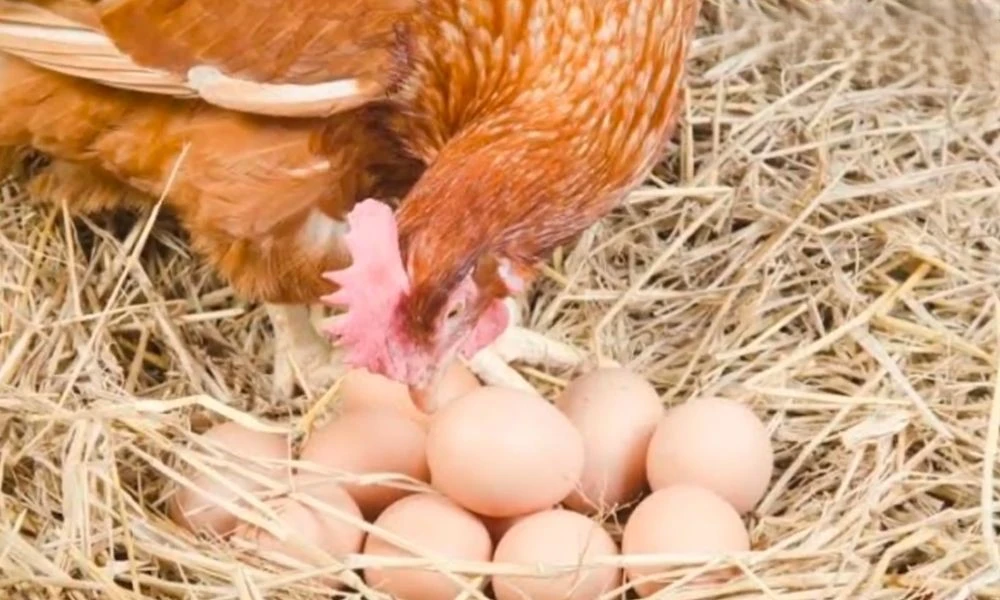
Monitor the Flock
Once you suspect egg-eating, closely watch your flock to catch the egg-eater in action. You can observe the chickens during their laying times, or use a camera to monitor the nesting boxes. Pay attention to any unusual behavior, like hens spending too much time in the nesting box after laying.
How to Stop Chickens from Eating Eggs
Now that you’ve identified the egg-eating, it’s time to take action. Here’s what to do:
Improve Nutrition
Make sure your chickens are getting a balanced diet with enough calcium and protein. You can:
Add Oyster Shells: Give them crushed oyster shells as a supplement to boost calcium intake. This will help strengthen eggshells and reduce breakage.
Increase Protein: Make sure your chickens have enough protein in their feed so they don’t need to get it from their own eggs.
Collect Eggs Timely
Often Collecting eggs multiple times a day reduces the chance of eggs being left in the nest long enough to get broken or eaten. The fewer eggs out there, the less opportunity for egg-eating.
Entertainment
Chickens that are bored will peck at eggs. Keep your flock busy by:
- Adding toys, like hanging treats or scratch grains, to keep them entertained.
- Giving them enough space to roam and explore.
Fake or Wooden Eggs
Placing fake eggs or golf balls in the nesting boxes will trick them. When they peck at these solid objects and get no reward, there are high chances that they’ll lose interest in pecking real eggs.
More Bedding in Nesting Boxes
A soft cushioned nest will help prevent eggs from breaking. Add more straw or other bedding material to reduce the chance of eggs cracking when a chicken steps on them.
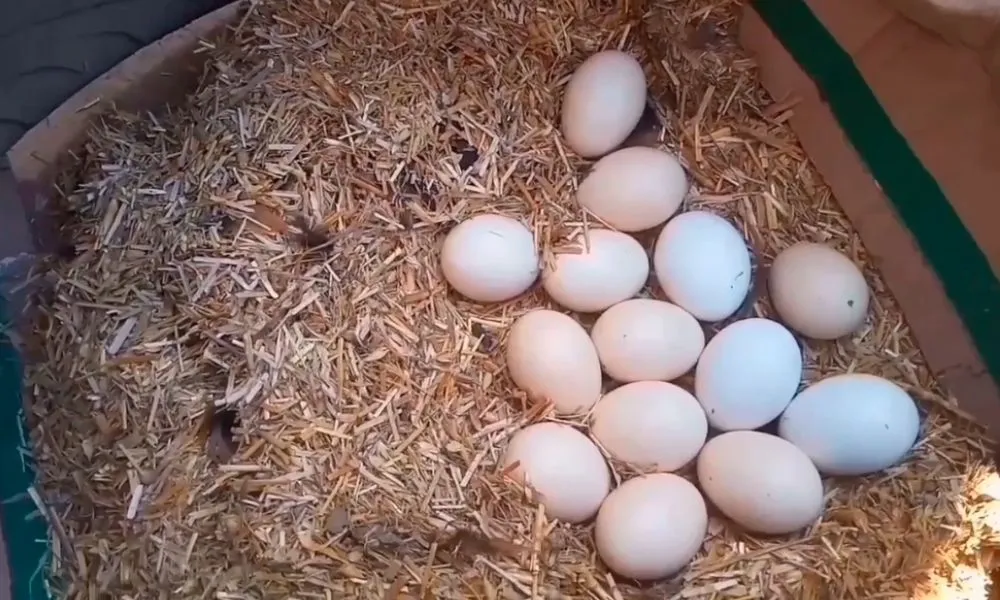
Final Thoughts
Taking these steps to stop egg-eating in your flock will greatly improve their health and overall management. Don’t let your hens ruin any more eggs! Work on preventing egg-eating before it starts and help hens that have developed this habit. Providing a balanced diet, healthy treats, proper supplements, regular egg collection, and good nesting practices can help keep your chickens from eating their eggs.
